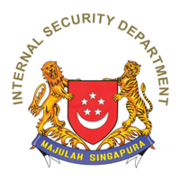1960 CIA plot
From 1960 to 1961, the Central Intelligence Agency (CIA) attempted to recruit Yoong Siew Wah, an inspector in SSB, as a mole to provide them with sensitive security intelligence for the United States. Prime Minister Lee Kuan Yew authorised a double agent operation with Wah playing along with the CIA. While meeting CIA officers in a safe house, SSB agents, which had been earlier deployed around the house, moved in to make arrests. [8]
Two polygraphers managed to escape in a car leading to a car chase which ended in their arrest and the seizure of a polygraph machine. A CIA officer working under the cover of an embassy First Secretary was declared persona-non-grata and expelled from Singapore. Lee was personally offered with US$3.3 million to him and his political party, People's Action Party, to cover up the matter but he rejected it and demanded US$33 million in economic aid instead. Dean Rusk, then U.S. Secretary of State, formally acknowledged the affair and apologised in a letter. [9]
In 1965, during a televised interview with foreign correspondents about the British bases in Singapore, [10] Lee revealed the CIA plot. After the broadcast, James D. Bell, U.S. ambassador to Malaysia, and the State Department officially denied the incident, leading a furious Lee to display the letter from Rusk to correspondents as evidence. [11] Lee also threatened to broadcast tape recordings proving the charge. [11] The denials were eventually withdrawn with a closed congressional record suggesting that the State Department and the ambassador were both unaware of the case as newer officials had failed to consult the files. [11]
Jemaah Islamiyah operations in Singapore
In the late 1980s, the Jemaah Islamiyah (JI) created a Singapore branch with Haji Ibrahim bin Haji Maidin as the leader of the Singapore branch. [12] Ibrahim recruited members through religious classes which he conducted at private residences. [12] The Singapore branch had an estimated 60 to 80 members in a 2002 estimate by the ISD. [12]
JI aimed to establish a dawlah islāmiyyah (Islamic state) in Southeast Asia and planned a series of attacks to occur in the aftermath of the September 11 attacks against the United States. Close to 80 targets were identified with plans to bomb a shuttle bus ferrying American military personnel and their families from Sembawang to Yishun MRT station. Other targets included key military installations like the MINDEF Headquarters at Bukit Gombak, [13] U.S. and Israeli Embassies, British and Australian High Commissions, the Singapore American School, and commercial buildings housing US firms. [14]
Primarily, JI scheduled major coordinated attacks against the American and Israeli embassies; the Australian and British high commissions, the Singapore American School, Sembawang Wharf and Changi Naval Base, as well as commercial buildings hosting American multinational companies. The plotters had made arrangements to procure 17 tonnes of ammonium nitrate, 6 tonnes of trinitrotoluene (TNT), 300 pieces of detonators, 2.4 km of detonator cord, and six trucks (to be filled with the explosives). [12]
In 2001, Ibrahim was arrested by ISD. [12] ISD was then informed that another Singaporean, Mohammad Aslam Yar Ali Khan, had links to Al-Qaeda. In December, the ISD arrested 15 people under the Internal Security Act for terrorism-related activities. [12] 13 of the arrested people were determined to be JI members and were served with Orders of Detention. The other two non-JI members were released on Restriction Orders. [12] Aslam would later be arrested by the Northern Alliance in Afghanistan. [12] In 2002, a review of the cases 13 detainees was done by an independent advisory board. [12] The subsequent report by the board supported the ISD's detention of the JI members. In August, ISD arrested 21 Singaporeans which consisted of 19 JI members and 2 Moro Islamic Liberation Front members. [12] Out of the 21, 18 were detained while the remaining three were released on Restriction Orders. [12]
In 2023, during the ISD's 75th Anniversary Gala Dinner, Prime Minister Lee Hsien Loong, in his speech, pointed out one of ISD's first female Operations officers, "Tiger Lily", who was instrumental in breaking into the Singapore JI network. [15] She had managed to get close to the JI Muslimah, wives of JI members, and subsequently through them to persuade their husbands to reveal their JI involvement and cooperate with ISD investigations. [5]

